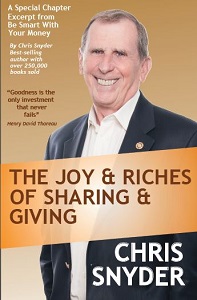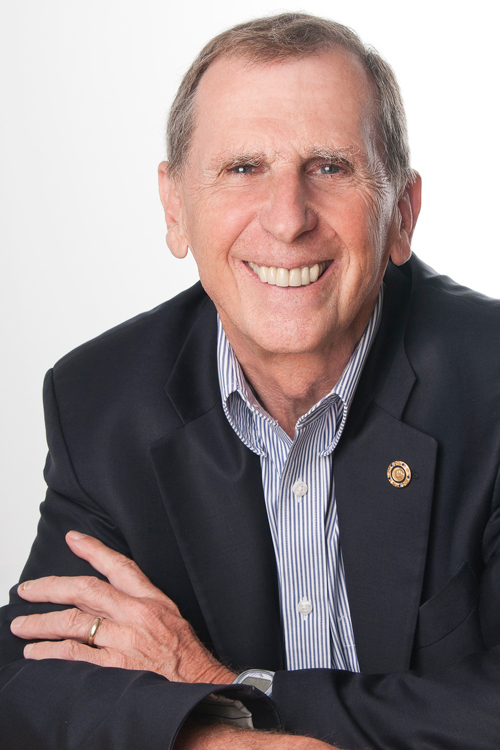A conversation with Chris Snyder, author of Be Smart With Your Money: Using emotional intelligence and knowledge to secure your financial well-being
Q: Chris, you’ve advised hundreds of people in your role as a financial planner. Why do you think people give to a cause?
A: People give if they believe in the cause. Often they have had exposure to the organization, been impacted and inspired by it. People also give because they are asked. It is usually best to be asked personally.
Q: Why do people not give or give only a small amount, in your experience?
A: Either they do not believe in the cause or they believe they cannot afford to give much.
Q: How much should people give?
A: This is a personal decision that will vary with the individual and their circumstances. The old rule of thumb was 10% but this is in the past; it doesn’t seem to apply any more.
Q: What are some of the financial benefits of giving?
A: You of course receive a tax credit which could save you about 46% and means you might be able to give more. The Government is in effect your giving partner. The savings amount will vary depending on the nature of the gift. For example if you give a security on which there have been capital gains you would receive a credit on the amount given plus you will pay no tax on the capital gain. Much of the benefit is in the satisfaction of helping. It is hard to quantify but that good feeling can result in an improved outlook and attitude which could have a financial return.
Q: How do I determine how much I can give?
A: The best way to do this is to include your giving within your financial plan. This could be by working through a budget or if it is a capital asset you may need to do some long term planning.
Q: How do I determine if I (we) have enough to make a major gift now or if I should leave something through my will instead?
A: Again, your financial plan will help you figure that out. You will probably need some professional guidance to help you work out the best way to do it and determine how much you can afford.
Q: How can one person make a difference and can you give me an example?
A: There are many ways to make a difference. Certainly if you know the person and the circumstances you can see the results. And it doesn’t require much money. $50 can provide a bike for someone to ride to school in Cambodia. This could make the difference between getting an education leading to a livelihood and remaining in poverty. Often people need help with transportation to get places. Many people going to food banks need assistance with the bus fares. Even if you make a donation along with others the combined amount can have a big impact. For an example of how a small amount can make a big difference, go to the chapter on the Joy and Riches of Sharing and Giving and check out the story about the deaf and dumb child in India. Download the Joy & Riches of Sharing & Giving chapter here


One Response to “Be Smart With Your Money: A Conversation with Author Chris Snyder”
Jim Hilborn
It is good to see Chris being interviewed by the charitable sector, as he is one of a very small band of financial planners who insist on building charitable gifting into all of their financial planning. Chris walks the talk. Totally aside from his own very generous support for a wide range of charities, his articles on charitable giving in his newsletter, “The Personal Financial Planning Letter” in the early 1980s led directly to the first newsletters on planned giving in Canada — from the University of Guelph, and then Queen’s, U of T, McGill and later many others. A true friend of our sector.
•